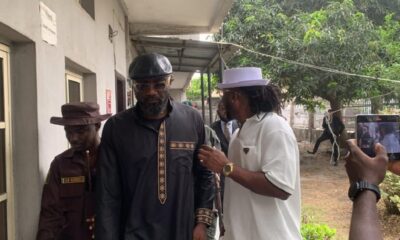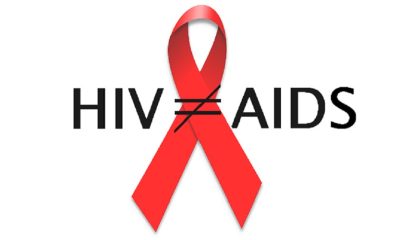News
Corps members criticize FG over non-payment N77k allowance
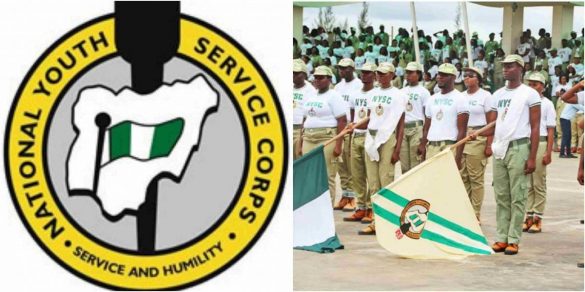
Members of the National Youth Service Corps have expressed their disapproval of the Federal Government’s persistent failure to implement the payment of the N77,000 allowance.
The Federal Government had approved an increase in the corps members’ monthly allowance from N33,000 to N77,000, effective July 2024.
In the same year, the Director-General of the NYSC, Brig. Gen. Yushau Ahmed stated that the new allowance was implemented due to the non-release of funds.
The DG later announced that corps members would start receiving the N77,000 in February 2025.
Despite the official announcement, findings by Sunday PUNCH revealed that the NYSC has yet to commence payment of the N77,000.
Many corps members also told our correspondent that they received only N33,000 for their February allowance on Friday.
A corps member serving in Abia State accused the Federal Government of insincerity regarding the payment of the N77,000 allowance.
The corps member, who spoke with Sunday PUNCH on condition of anonymity because corps members are not allowed to talk to the media, lamented that the N33,000 allowance was insufficient.
She said, “The N33,000 is not enough for us. The PPA where we are posted doesn’t provide accommodation; we have to handle that ourselves. The economic situation of the country is not new to anybody. Feeding is another issue in an unfamiliar place. It’s nearly impossible to survive on N33,000 a month. PPAs don’t pay well; some pay as little as N4,000. Imagine surviving on N37,000 a month when you add the N4,000.
“Things are very expensive. I haven’t even included transportation costs. In the fellowship house where I’m staying, we contribute for food, and after that, one is left with a meagre amount. I haven’t even mentioned other bills that have to be paid. The money is very poor, and the Federal Government keeps promising and failing us. This is very bad.”
Another corps member serving in Osun expressed dissatisfaction with the Federal Government over the delay in paying the new allowance.
She said, “The Federal Government should do something; this N33,000 is insufficient. After calculating my expenses, I see that I spend over N70,000 a month. The money I spend on transportation alone is over N12,000 monthly, excluding the days I go for CDS. I had to call my mother to ask for support because this monthly allowance is inadequate. One cannot survive on this unless one is ready to suffer.”
Also, a corps member serving in Lagos expressed her dissatisfaction, saying, “I don’t know how they expect us to survive on N33,000 when there is so much hardship. They keep promising N77,000, yet we have not seen anything.”
The Director of Communication of the NYSC, Carol Embu, neither answered calls nor responded to a text message sent to her when our correspondent reached out for comment on the matter.
However, a senior official of the NYSC, who requested anonymity, confirmed that the scheme had yet to commence the N77,000 payment.
“We are yet to start payment for the new allowance,” he said.
Credit: PUNCH
News
TETFUND threatens to cut financial support to non-performing institutions

The Tertiary Education Trust Fund (TETFUND) has threatened to cut financial support to beneficiary tertiary institutions that fail to meet performance benchmarks or mismanage allocated funds.
The agency said it would de-list such tertiary institutions from its support programmes.
Executive Secretary of TETFUND, Sonny Echono gave the warning at a one-day strategic engagement with heads of institutions, bursars, and heads of procurement of the agency’s beneficiary institutions in Abuja on Monday.
Echono said the policy was not meant to punish, but rather safeguard the credibility and impact of TETFUND interventions.
He said: “Let me be clear, institutions that consistently fail to access, utilise or retire funds appropriately, or that fall short of enrollment and academic performance thresholds, risk being delisted as TETFUND beneficiary institutions.”
He also disclosed the intention of TETFUND to ensure that its resources were directed towards institutions that were committed to high standards of governance, transparency, and accountability.
Echono said the strategic engagement was targeted at addressing recurring challenges in Nigeria’s tertiary education sector, improving project execution, and enhancing the quality of education.
A key focus, he said, was the Academic Staff Training and Development (AST&D) intervention.
He said due to rising costs and incidents of scholars absconding, the foreign component of the TETFUND Scholarship for Academic Staff (TSAS) was suspended as of January 1, 2025 with emphasis now shifted to cost-effective, locally driven training.
Echono said this year’s intervention budget prioritises consolidation, sustainability, and the completion of abandoned projects.
He added: “This engagement is not merely a meeting but a strategic convergence. It is designed to address recurring issues of concern, streamline project implementation, and enhance the overall quality of tertiary education delivery in our nation.
“As we move forward, let us approach today’s discussions with openness, collaboration, and a shared vision to elevate our institutions and the students we serve.
“Together, we can strengthen accountability, drive innovation, and ensure that the legacy of TETFUND remains impactful, equitable and enduring for generations to come.”
Executive Secretary of the National Universities Commission (NUC), Professor Abdullahi Ribadu emphasised the importance of the meeting for evaluating the implementation and impact of TETFUND – supported projects in higher education institutions.
The NUC chief, who was represented by Dr. Joshua Atah appreciated TETFUND’s vital role in improving infrastructure, research, staff development, and academic quality, stating that without its support, public education would struggle to survive.
Prof. Ribadu acknowledged the adaptability of TETFUND’s policies, such as suspending international scholarships to reallocate resources more effectively.
He urged tertiary institutions to be more responsive and ensure that interventions were relevant and efficiently executed.
Ribadu encouraged judicious and timely use of funds and called for open and constructive dialogue during the engagement.
“This calls for greater responsiveness also on the part of the institutions. This responsiveness also includes the areas of the design and implementation of these interventions to ensure that they remain relevant, impactful, and aligned with the future of education in Nigeria.
“It’s also important that we judiciously utilise these resources, and not just judicious utilisation but also in a timely manner so that we don’t lose the fund,” he said.
News
Again, Boko Haram reportedly attack military base in Borno
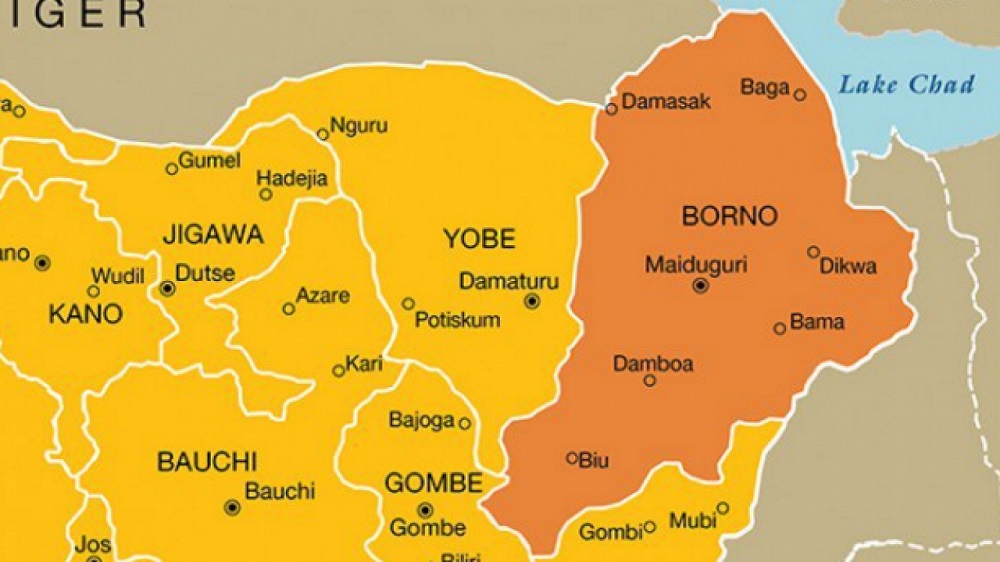
Suspected Boko Haram terrorists have attacked a Nigerian Army base in Marte , the headquarters of Marte Local Government Area of Borno State with casualties
The terrorists attacked the 153 Task Force Battalion’s Forward Operation Base (FOab) at around 3am on Monday, according to the locals and security sources.
They said the terrorists also burnt armoured tanks and seized arms and ammunition from the base during the attack.
“ISWAP has taken over Marte. An unspecified number of soldiers were killed, some captured, and many others fled towards Dikwa.
“They are currently at the 24 Task Force Brigade in Dikwa,” a source said.
Recent terrorist attacks have targeted several military formations in Borno and Yobe, including Sabon Gari and Buni Yadi, with the latest being the attack on the 153 Task Force Battalion.
Attempts to reach Maj-Gen Markus Kangye, Director of Defence Media Operations, were unsuccessful as he didn’t answer calls or respond to text messages.
News
Taraba Woos Global Investors Ahead of Landmark Economic Summit

…Taravest 2025 to Unlock Opportunities in agric, energy, mining
…as state offers peace, resources, incentives
By Gloria Ikibah
The Federal Government and Government of Taraba State have called on the international community and private sector players to partner with Taraba in unlocking the state’s massive investment potentials across agriculture, energy, mining, and tourism.
This call comes ahead of the Taraba International Investment Summit (Taravest), with the theme: “Unlocking Taraba’s Investment Potentials, Advancing Agriculture, Energy, Mining and Industrialization for sustainable development “, scheduled for May 21, 2025, in Jalingo, Taraba state.
Speaking at the diplomatic preparatory briefing in Abuja, the Minister of Foreign Affairs, Ambassador Yusuf Maitama Tuggar, who was represented by Ambassador Anderson Madubike commended the initiative, describing it as a platform that aligns with Nigeria’s economic diplomacy agenda.

“I wish to commend His Excellency and indeed the Government of Taraba State for convening this timely summit, particularly at this time when the whole world is in need of creating a travelling investment climate through co-location. There is therefore the need for partnership between governments, private sector players, and civil societies,” the Minister stated.
He emphasised that Taravest represents “a collective pursuit of development and prosperity, not only for Taraba State, but indeed for the whole world.
“They have enormous resources—we’re talking about gold, we’re talking about uranium, and many others, and of course agriculture, fertile land, which you know, food, is the way to go”, he added.
Ambassador Madubike noted that the theme for the summit, themed “Unlocking Taraba’s Investment Potentials: Advancing Agriculture, Energy, Mining, and Industrialization for Sustainable Growth,” is expected to attract both local and international stakeholders.
“Our presence here signifies a commitment to making Taraba a model of investment and sustainable development,” he said.
In his address, the Executive Governor of Taraba State, Dr. Agbu Kefas, expressed gratitude to the Federal Ministry of Foreign Affairs and extended an open invitation to diplomats and investors.
Dr. Agbu highlighted the significance of the summit as the first of its kind since the state was created in 1991, and laid out three clear objectives.
“It is my great honor to welcome you to the Paivota Preparatory Meeting for the Taraba State International Investment Summit, Taravest 2025, in just nine days to come.
“To orient you to Taraba’s untapped potentials and the structure of the summit; to inspire your confidence in our security, infrastructure, and business environment; and to enlist your support in rallying investors, technical partners, and development agencies”, the governor said.
He emphasised Taraba’s strategic strengths, citing five core advantages, this is as he reassured guests about the state’s security readiness.

“Peace and security, over 44,000 km² of fertile land for agriculture, massive hydropower and solar capacity, rich mineral reserves including gold, barite, and lithium, and growing opportunities in tourism and the digital economy.
“I want to assure you that we have coordinated with the state security services, the Nigerian military, the Nigerian police, and our traditional rulers… to guarantee your safety”, he added.
The summit, he explained, will feature B2B and B2G matchmaking, policy dialogues, PPP frameworks, and guided site visits to model farms and mining zones.
“Taravest 2025 is more than a conference. It is a statement of fact that Taraba is open for transformative partnership. I invite you to leverage your good offices to mobilize your government and business communities,so that together we will convert promise into progress and unlock a future of shared prosperity”, Dr. Agbu added.
He also urged embassies to submit the names of participating investors and delegates by May 16, 2025, to ease logistics.
Taravest 2025, which will hold at the Banquet Hall of the Government House in Jalingo, aims to attract capital, expertise, and innovation to transform Taraba into a thriving investment destination and economic powerhouse.
-

 News17 hours ago
News17 hours agoJust in: Wike admits Fubara alongside 2 govs visited him on reconciliatory moves
-

 News20 hours ago
News20 hours agoRivers crisis: Wike’s aide mocks Fubara, advises him to honourably quit since his spirit has left Brick House
-

 News14 hours ago
News14 hours agoGo home to face corruption probe, protesters in London tell Kyari (Photos)
-

 Economy19 hours ago
Economy19 hours agoSEE Black Market Dollar (USD) To Naira (NGN) Exchange Rate Today 12th May 2025
-

 News20 hours ago
News20 hours agoJapa! UK to End Overseas Care Worker Recruitment to Cut Migration
-

 News20 hours ago
News20 hours agoJust in: Chris Piwuna emerges as new ASUU President
-

 News17 hours ago
News17 hours agoAMCON, Others Dragged to Court Over Alleged Undervalued Sale of Ibadan Disco for $62m
-
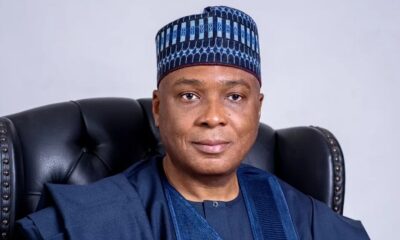
 News21 hours ago
News21 hours agoEx-Senate President , Saraki chairs PDP strategy committee on way forward








